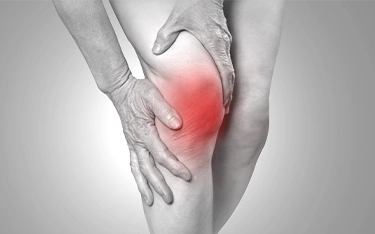Do you often feel a twist in your stomach when anxious or find yourself rushing to the washroom before a stressful event? This is not just a coincidence. The brain and gut are closely connected through the vagus nerve, which means your mental state can directly impact your digestive system. Research shows that over 60% of Indians with chronic stomach issues also experience anxiety or stress. Symptoms like bloating, cramps, or acidity are often triggered by emotional distress, not food alone.
At Dr Batra’s®, we understand this deep gut-mind link. Our treatment goes beyond symptoms. With personalised homeopathy and expert counselling, we address both the emotional and physical causes of your discomfort. Our holistic care gently restores balance, offering long-term relief for your anxious stomach without harsh medicines or side effects.
Why Does Anxiety Affect the Stomach?
The Gut-Brain Connection Explained Simply
Your stomach is sensitive to emotions. Anxiety, stress, and nervousness can directly influence how your digestive system functions. This is due to the gut-brain connection, also known as the gut-brain axis. When your brain feels threatened, your stomach reacts.
Here’s what typically happens:
- Hormonal imbalance: Anxiety releases stress hormones like cortisol and adrenaline.
- Chemical disruption: These hormones disturb digestion by affecting stomach acid and gut bacteria.
- Reduced immunity: Your gut’s natural defence lowers, leading to increased sensitivity and discomfort.
Common symptoms include:
- Frequent stomach cramps or pain
- Nausea or feeling bloated
- Diarrhoea or constipation
- Loss of appetite or overeating
- Excess gas or acidity
If these happen often, especially during stressful situations, it’s likely due to anxiety.
Insights from a global study
A study published in Clinical Gastroenterology and Hepatology (2015) found that anxiety can impair stomach function, leading to symptoms like bloating, nausea, and cramps, commonly described as an anxious stomach.
How to Calm a Nervous Stomach
Easy, Natural Ways to Feel Better
Here are simple things you can do when your stomach feels anxious:
- Deep Breathing: Take 3–5 minutes to focus on slow, deep breaths. It calms your nervous system.
- Exercise or Yoga: A 20-minute walk or some yoga stretches release feel-good hormones.
- Mindful Eating: Eat slowly, chew properly, and eat light meals to avoid overloading your gut.
- Say No When Needed: Take on only as much as you can handle. Protect your peace.
- Stay Hydrated: Drink warm water or herbal teas like chamomile.
- Digital Detox: Stay away from screens and social media for at least 30 minutes before bed.
- Journaling: Write your thoughts to clear your mind. It often clears the tummy too.
Tips to Ease an Anxious Stomach
- Avoid skipping meals as it increases stomach acidity.
- Sleep at a regular time to reset gut health.
- Avoid caffeine and alcohol during anxious episodes.
- Take breaks from stressful tasks to reset mentally.
- Eat light, warm meals that are easy to digest.
- Take small walks after meals to improve digestion.
- Listen to calming music when you feel uneasy.
- Avoid cold drinks and spicy food when stressed.
- Talk to someone when you feel emotionally overwhelmed.
- Practice deep breathing during moments of panic.
Dr Batra’s® pro tip:
For an anxious stomach, sip ginger or chamomile tea, practice deep belly breathing, and avoid caffeine and spicy foods.
Best Remedies for Anxiety-Related Stomach Issues
- Lifestyle changes can reduce mild symptoms.
- Frequent episodes need medical evaluation.
- Antacids or laxatives may give temporary relief.
- Anti-anxiety medicines treat emotional distress.
- These options often address symptoms, not the root cause.
That’s where homeopathy comes in.




